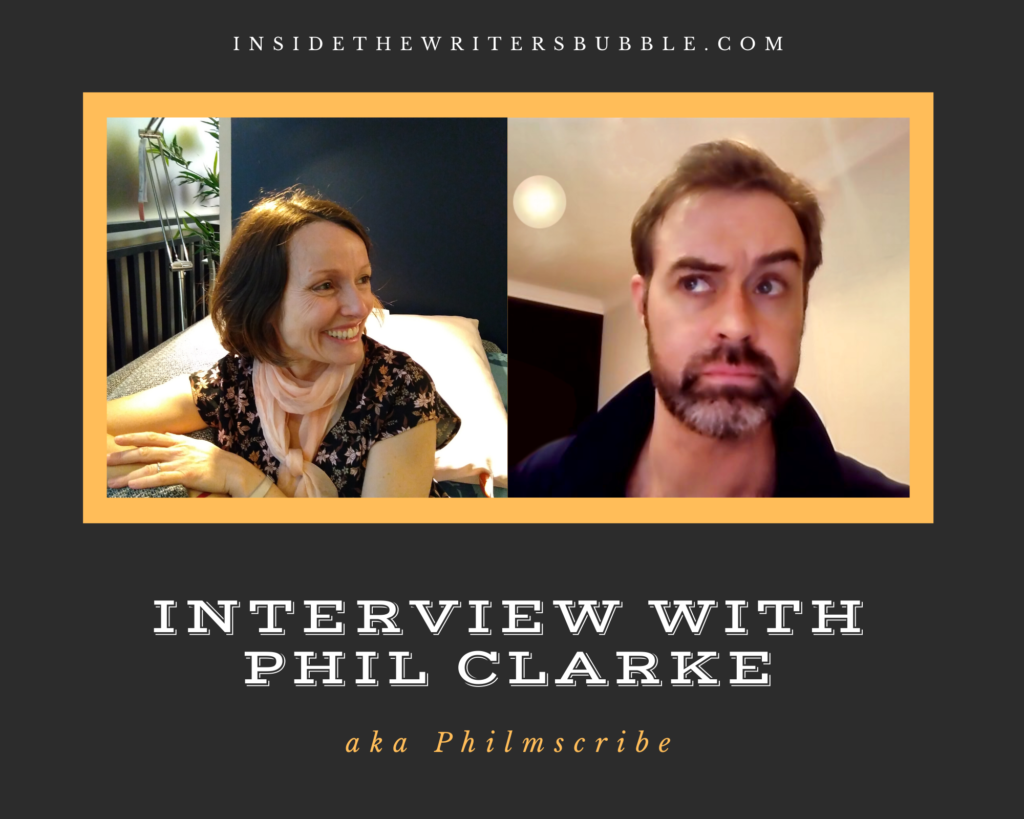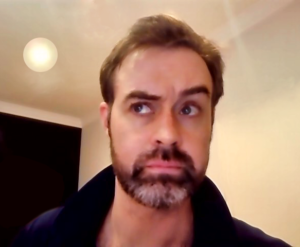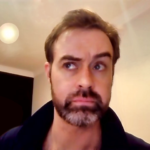Interview with Phil Clarke

Phil Clarke (aka Philmscribe) is a UK-based script consultant and screenwriter with over twenty years service to cinema.
After years working at the coal face of film on such features as Sleepy Hollow, Enigma, The Beach and two of the biggest box office franchises: Star Wars and Harry Potter, Phil turned to writing – both for the page and the screen. His screenplays have been optioned both in the UK and Hollywood and his books have been published worldwide.

Phil: Pleasure!
Sophie: Why is it so important for a screenwriter to work with a consultant?
Sophie: You often say that the writer’s voice is important, why?
Sophie: Do you think screenplays competitions are still worth it? And if yes, which ones? Which events a screenwriter should attend?

Image by olilynch @ Pixabay
Sophie: Who is/was your mentor and what has she/he taught you?
Phil: I never had one single individual who acted as a mentor; it was more of a collective. The years spent working for movie productions, on the sets of major films, seeing first-hand how the likes of Tim Burton, Terry Gilliam, George Lucas, Chris Columbus, Michael Apted did their thing was a huge learning experience for me. I was fortunate to closely shadow Chris Columbus on the first two Harry Potter films, was with him on-set, in the rushes theatre watching dailies, in the production office, in editing, and accompanied him to all departments during principal photography and this priceless level of access – not to mention having the chance to bend his ear and get his take on filmmaking and writing and having him read my early work – allowed me to fully understand the filmmaking and script development processes.
I’ll never forget the best piece of advice he gave me. At the time, I was poring over paradigms and screenwriting formulae, and when I asked him about the validity of these, he turned to me and said: “Just write an entertaining story.” It was his way of telling me not to rely on these overworked plot structures, but focus on telling a story that entertains. If you can do this honestly, then you’re on the right track.

Image by qimono @ Pixabay
Sophie: What inspires you?
Phil: Great writing. Indomitable perseverance. Plucky underdogs. Unwavering self-belief. Beautiful cinematography. Effortless prose. Unyielding passion.
Sophie: Which screenplay do you wish you had written?
Phil: Oooh good question! Hard to pick just one. Those that come to mind right now — Se7en. Back To The Future. Raiders of the Lost Ark. There are also some I wish I’d written as I feel I’d have taken them in a different direction… but out of respect, I think I’ll keep these to myself!
Sophie: What is the project that challenged you the most? How did you get through it?
Phil: That’s a tough one to answer. I can’t really go into specifics about a particular script, but consistently the projects that tend to challenge me the most are those for which I’ve been hired to perform an Anglicisation Edit. I do have quite a number of writers who don’t count English as their first or main language but have written in this tongue and wish for me to improve the authenticity of their dialogue and action. This can be quite the task, particularly when the writer’s intention isn’t clear. Consequently, there is a lot of back and forth to establish intention so I can communicate exactly what the writer requires.
Sophie: What do you do when you get stuck on your writing?
Phil: Ask questions. Work out WHY I am stuck. What am I struggling with. Then study the answers I’ve come up with and within these should be the way forward on how to get unstuck. Sounds simplistic, but it works.

Image by Lukasbieri @Pixabay
Sophie: Are you writing at the moment? Can you tell us something about it?
Phil: I’m always writing. Whether it be lengthy reports on scripts, script commissions, polishing other people’s projects, rewriting, creative email correspondence, articles on writing etc etc… But I assume you mean, writing my own creative projects. The answer’s yes though only when I can spare the time as my clients’ work comes first, always. Right now, I’m doing some major world-building on an ambitious time travel idea. That’s about all I can say right now.
Sophie: If you could share one secret about screenwriting, what would it be?
Phil: These days, I don’t believe there are any secrets about screenwriting. There is no magic formula to success, no shortcut to making it. You just need to do the hard graft, keep practising, keep honing your craft, work on your storytelling abilities and writing style and build that portfolio of solid, engaging, entertaining work. Secrets suggest there’s some kind of hidden way, that all the people who have made it and are working in the industry are aware of it and aren’t sharing. Not so.


2 thoughts on “Interview with Phil Clarke”
Leave a Reply Cancel reply
This site uses Akismet to reduce spam. Learn how your comment data is processed.
Glad I can reply to this now. Thanks again for asking some terrific questions, Sophie. An easy, pleasurable experience being interviewed by you. Hope the Q&A has helped your readership in some small way.
Thank you so much for accepting to do this interview Phil 🙏